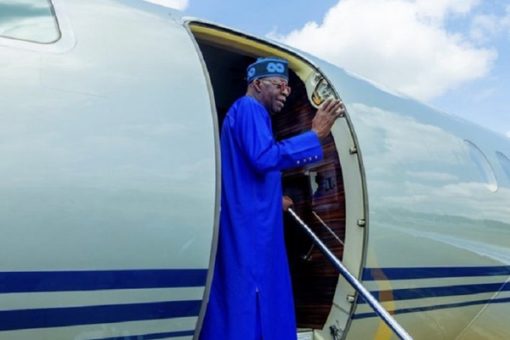
President Bola Ahmed Tinubu has departed Malabo, the capital of Equatorial Guinea, after a three-day official visit.
The President’s trip, which began on Wednesday, was at the invitation of his counterpart, President Teodoro Obiang Nguema Mbasogo.
During his stay, President Tinubu engaged in various diplomatic and economic activities aimed at strengthening ties between Nigeria and Equatorial Guinea. One of the highlights of the visit was the signing of the Gulf of Guinea Pipeline agreement, a significant milestone in the bilateral relations between the two nations.
In addition to the pipeline agreement, President Tinubu’s visit also saw the revitalization of the Nigeria-Equatorial Guinea Joint National Commission. This commission is set to facilitate numerous bilateral activities, with many more expected to be activated in November.
President Tinubu was accompanied by the Equatorial Guinean Prime Minister, Manuela Roka Botey, during his departure from the Malabo International Airport at approximately 4:03 pm.
